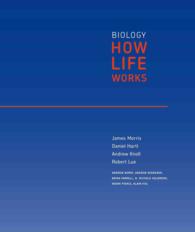Full Description
This monograph opens with an examination of the aid industry and the claims of leading practitioners that the industry is experiencing a crisis of confidence due to an absence of clear moral guidelines. The book then undertakes a critical review of the leading philosophical accounts of the duty to aid, including the narrow, instructive accounts in the writings of John Rawls and Peter Singer, and broad, disruptive accounts in the writings of Onora O'Neill and Amartya Sen. Through an elaboration of the elements of interconnection, responsible action, inclusive engagement, and accumulative duties, the comparative approach developed in the book has the potential to overcome the philosophical tensions between the accounts and provide guidance to aid practitioners, donors and recipients in the complex contemporary circumstances of assistance.
Informed by real world examples, this book grapples with complex and multi-dimensional questions concerning practices and the ethics of aid. The author judiciously guides us through the debate between deontological and consequentialist moral theories to arrive at a sophisticated consequentialist account that does justice to the complexity of the problems and facilitates our deliberation in discharging our duty to aid, without yielding, as it should not, a determinate answer for each specific situation. Researchers, students, and practitioners of international aid will all find this book rewarding.
Win-chiat Lee,
Professor and Chair, Department of Philosophy, Wake Forest University
Susan Murphy's book offers us a sophisticated exploration of the philosophical basis for aid. It is grounded in a full understanding of the complexities and pitfalls of the aid industry, but its particular strength lies, mainly through an extensive discussion of Singer, Rawls, O'Neill and Sen, in a comparison of consequentialist and duty-based approaches, eventually endorsing a broad non-idealised, situated consequentialist account in what she calls an interconnected ethical approach to the practice of assistance. For anyone wanting to think carefully about why we should give aid, this book has much to offer.
Dr Nigel Dower
Honorary Senior Lecturer, University of Aberdeen
Author of World Ethics - the New Agenda (2007)
Contents
Acknowledgements.- Introduction.- Chapter One: The assistance industry - crisis and change.- Chapter Two: Contemporary ethical approaches to the practice of assistance and foundational accounts of moral duty.- Chapter Three: Contemporary philosophical faces of deontology and consequentialism - John Rawls and Peter Singer.- Chapter Four: The 'terrible beauty' of imperfect duties - Onora O'Neill and Amartya Sen on the duty of assistance.- Chapter Five: Adjudicating between O'Neill and Sen on assistance.- Chapter Six: Defending an interconnected ethical account of assistance.- Chapter Seven: Implications for Practice and Policy.







